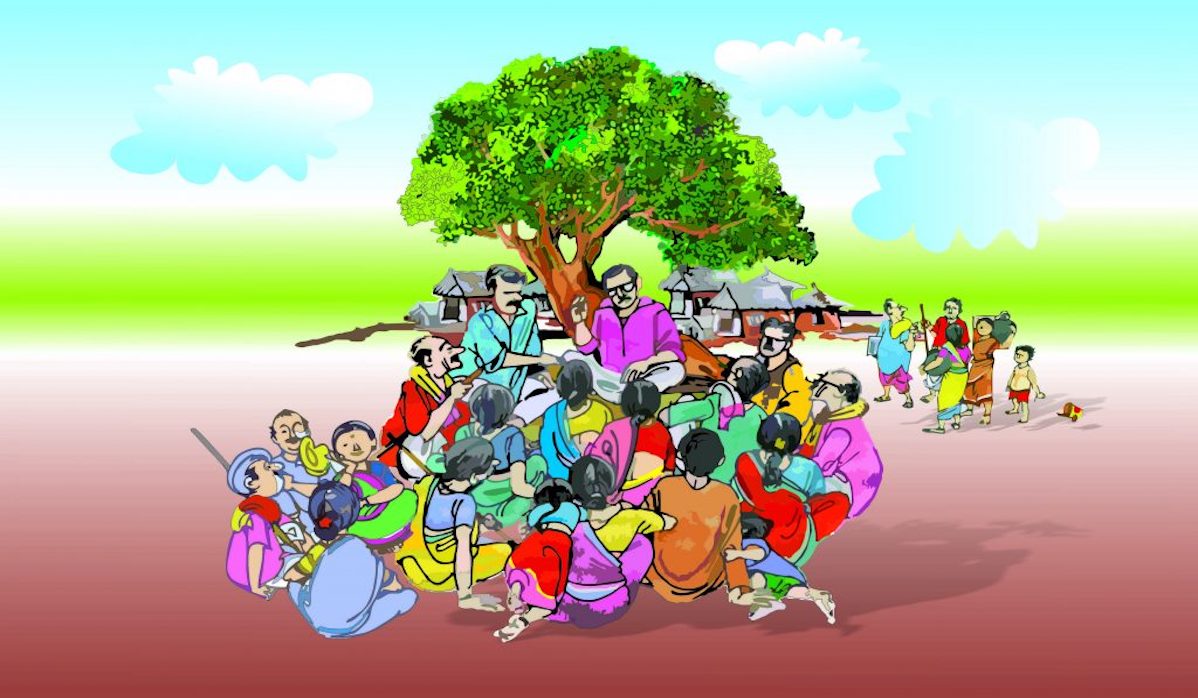K Anves
Sri Vijaya Puram, 20 October 2024
The concept of Nyaya Panchayats in India embodies a grassroots approach to justice, aiming to bring legal resolution to the village level. The 42nd Amendment Act of 1976 played a pivotal role in enhancing India’s legal framework by introducing Article 39A into the Constitution. This article underscores the State’s duty to ensure that justice is accessible and equitable for all citizens, emphasizing the need for free legal aid to eliminate barriers faced by economically or socially disadvantaged individuals. Nyaya Panchayats and Lok Adalats were established as mechanisms to achieve this objective, ensuring justice is available at the local level.
Nyaya Panchayats: Justice at the Doorstep
Nyaya Panchayats function as village courts, embodying the principles of natural justice while maintaining a straightforward and accessible process. Their primary aim is to resolve disputes locally, providing quick and cost-effective justice to the rural population and reducing the burden on formal courts.
Structure of Nyaya Panchayats
Nyaya Panchayats are set up for each Village Panchayat area or a cluster of such areas, depending on population size and geographical considerations. Each Nyaya Panchayat is composed of five elected members, known as Panchas, chosen by the voters from the respective village. Among these members, the Nyaya Pramukh (Chief) is appointed annually based on seniority in age. (The Structure of Nyaya Panchayats, procedure for appointment of Nyaya Pramukh and the term of Nyaya Pramukh may vary in different states.)
Functions of Nyaya Panchayats
Nyaya Panchayats play a crucial role in enhancing the justice delivery system, performing several functions, including:
1. Speedy and Cost-Effective Justice: By minimizing the procedural complexities typical of mainstream courts, Nyaya Panchayats ensure that cases are resolved swiftly and affordably.
2. Local Dispute Resolution: Operating at the grassroots level, they make justice accessible to rural communities, reducing the need for villagers to travel long distances or engage in lengthy legal processes.
3. Alleviating the Burden on Higher Courts: By handling a significant number of cases locally, Nyaya Panchayats ease the caseload of regular courts, enabling them to focus on more complex matters.
4. Promoting Conciliation: Often, Nyaya Panchayats facilitate amicable settlements, promoting social harmony and reducing hostility among villagers.
Successes and Challenges
Nyaya Panchayats have shown their potential in various states, making justice accessible, affordable, and timely for villagers. They help reduce reliance on formal courts while promoting conciliatory resolutions that strengthen social cohesion.
However, they are not without challenges. Social factors like casteism, the influence of powerful landholders, and religious biases can hinder their effectiveness. Additionally, issues like inadequate funding, factionalism, fear of official favoritism, and the low educational levels of Panchas often limit their potential.
Nyaya Panchayats in the Andaman & Nicobar Islands
In the Andaman and Nicobar Islands, the Nyaya Panchayat system is implemented under “The Andaman and Nicobar Islands (Panchayats) Regulation, 1994.” This regulation provides a detailed framework for the establishment and functioning of Nyaya Panchayats, ensuring that the principles of grassroots justice are upheld even in remote and diverse regions like these islands.
Chapter VII of the Regulation focuses on the constitution and jurisdiction of Nyaya Panchayats, outlining their structure and the scope of cases they can handle.
Chapter VIII details the powers vested in Nyaya Panchayats, including their authority to hear civil and criminal cases within the limits set by the regulation.
Chapter IX lays down the procedure for handling cases and suits before the Nyaya Panchayat, ensuring that processes remain simple, fair, and accessible to the local populace.
Conclusion
Nyaya Panchayats are an integral part of India’s justice delivery system, especially in rural and remote areas like the Andaman and Nicobar Islands. While challenges remain, their effectiveness in providing accessible and affordable justice highlights their importance in achieving the objectives set forth in Article 39A of the Indian Constitution. By addressing these challenges and expanding their reach, Nyaya Panchayats have the potential to transform justice from a privilege into a fundamental right for every Indian citizen, regardless of their economic or social standing.
[The author of this article is an Independent thinker from Andaman and Nicobar Islands and the views are his personal. Connect through Email –anvesandaman@gmail.com]

